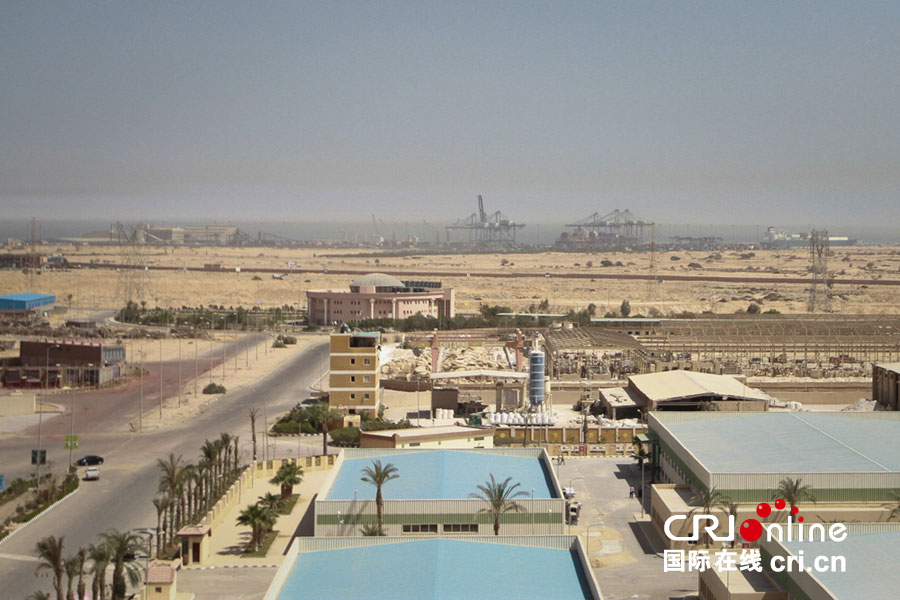China’s industrial park development model generates economic and social benefits in Africa

China-Egypt Suez Economic and Trade Cooperation Zone (Photo/CRI online)
China’s development model of industrial parks has created economic and social benefits while boosting employment in Africa, according to African delegates at the recently concluded first China-Africa Economic and Trade Expo, China News Service reported on June 30.
It has been over 10 years since the establishment of the Zambia-China Economic and Trade Cooperation Zone, the first Chinese-funded overseas economic and trade cooperation zone in Africa.
Realizing the importance of industrial parks, many African delegates attending the first China-Africa Economic and Trade Expo held in Changsha, capital of central China’s Hunan Province from June 27 to 29, expressed in their remarks that China’s successful experience in building and developing industrial parks has provided realistic approaches to the industrialization and economic development of African countries.
According to credible sources, there are so far 25 various Chinese-funded economic and trade cooperation zones in Africa, which have created jobs for more than 40,000 people and witnessed a total output value of $18.9 billion, significantly boosting tax revenue, employment growth, as well as improvements in economic and social benefits in host countries.
Ethiopia hopes to attract more foreign direct investment (FDI). The country will be glad to see more enterprises enter its industrial parks, said Misganu Arega, State Minister of Ethiopian Ministry of Trade and Industry, at the expo.
During the expo, Arega presented multiple industrial parks in Ethiopia including Ethiopia-Hunan Industrial Park, a high-standard integrated industrial park which is currently under construction in Adama city of Ethiopia.
Egyptian Tourism Minister Rania al-Mashat spoke highly of the China-Egypt Suez Economic and Trade Cooperation Zone at the first China-Africa Economic and Trade Expo, saying that Egypt is very proud of the project, stressing it has drawn not only Chinese investors but also investments from other countries to Egypt.
Covering an area of 7.3 square kilometers, the China-Egypt Suez Economic and Trade Cooperation Zone has attracted 77 enterprises, with an actual investment exceeding $1 billion.
Companies in the zone have accumulatively paid Egypt more than $80 million in taxes, while providing jobs to more than 3,500 local people.
Thanks to FDI from China, Ethiopia is now able to export smartphones to countries in Africa and the Middle East, according to Arega, disclosing that in recent years, many Chinese companies have entered Ethiopia’s industrial parks and invested in areas such as clothing, footwear, machinery, vehicle and equipment, electronics and pharmaceuticals.
Exports of clothing, as well as mechanical and electrical products from Ethiopia’s industrial parks, have seen rapid growth in the past three years, said Arega.
Economic and trade cooperation zones are essential platforms for China-Africa investment and cooperation, said Qian Keming, Chinese Vice Commerce Minister, stating that China will encourage Chinese enterprises to expand investment and cooperation in Africa.
China plans to build or apply for a batch of new economic and trade cooperation zones in Africa, aiming to help improve Africa’s self-development capability, according to Qian.


 +86-13460933678
+86-13460933678